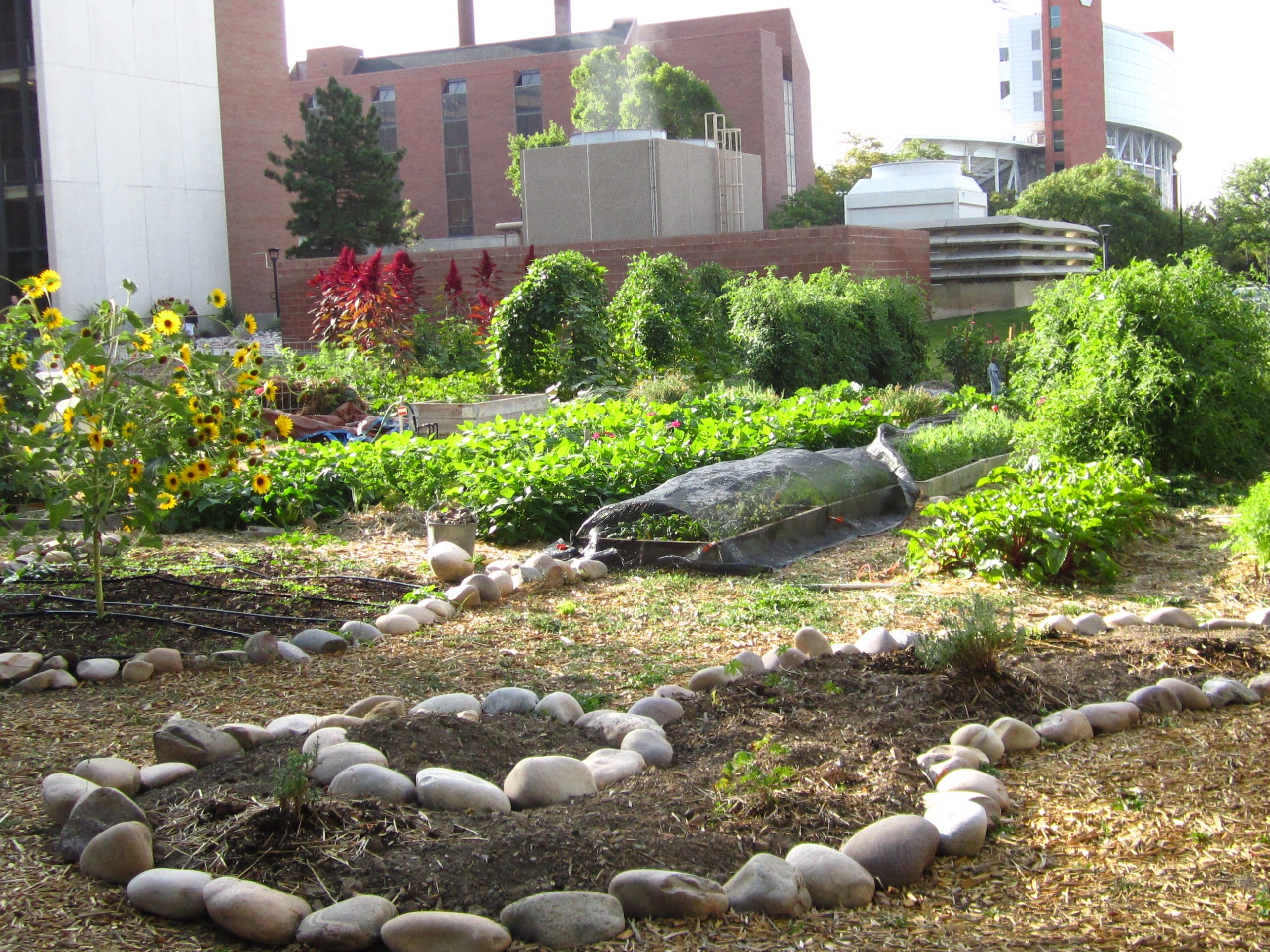This Native American Heritage Month, the Centering Indigenous Reciprocity, Culture, Learning, and Engagement (CIRCLE) and Edible Campus Gardens (ECG) programs will unveil the first official—and intentional—name for the largest edible campus garden. The partnership between the two programs began when the program leaders met at a campus event. At that time, the CIRCLE Program leadership was searching for a campus partner for service learning and civic engagement, in addition to CIRCLE’s planned programming.
The gardens offer service and community-engaged learning opportunities to campus, and ECG leadership was excited about this new partnership opportunity. Historically, the gardens have been referenced by the campus buildings to which they are nearest. Through this partnership, the CIRCLE students were able to engage in the process of intentionally naming the primary ECG location—found between the Pioneer Theater and the Eyring Chemistry Building.
This naming process empowered space-making and belonging and allowed for further distinguishing between the gardens. In line with university values of inclusion and belonging, the students discussed a name that proclaims that all students belong on campus and in campus programs, honoring our diverse campus community. The group was inspired by a common motif the Equity, Diversity, and Inclusion (EDI) division and American Indian Resource Center (AIRC) have been guided by since 2019: “I belong here.”
To honor the relationship the university has with the Ute Tribe, the students advocated for this phrase, in the Ute language, to be the garden’s name. The program staff connected with community members in the Ute tribe to begin the translation process. Emeline Root, the Tribe’s language and cultural coordinator, accepted the call to support this work.
Not all concepts are universal, and translation work can be complicated. Root explained that the Ute language does not include a direct translation for “belong.” Many Indigenous Peoples are distinct in their cultures and similar in their philosophies of connection to the natural environment. The guidance by a communal and shared way of life emphasizes the importance of reciprocity, living in community with all, and responsibility for our shared world. This responsibility emphasizes the importance of being present and is antithetical to the idea of possession. This principle is part of why Root speculates the language does not have a word for “belong.”
The students still sought a name that conveyed the same intent. Ultimately, the group selected the concept “I am here,” which honors the original concept of on-campus inclusion. As Root worked on the translation, she produced the phrase, Nuh Eevaat, (pronounced “new ee vaht”) which means “I am from here.”
To learn more about the involved programs and offices, and to get involved, visit the links below:
The CIRCLE program is part of the University of Utah’s American Indian Resource Center. The Edible Campus Gardens program is part of the University of Utah’s Sustainability Office.

